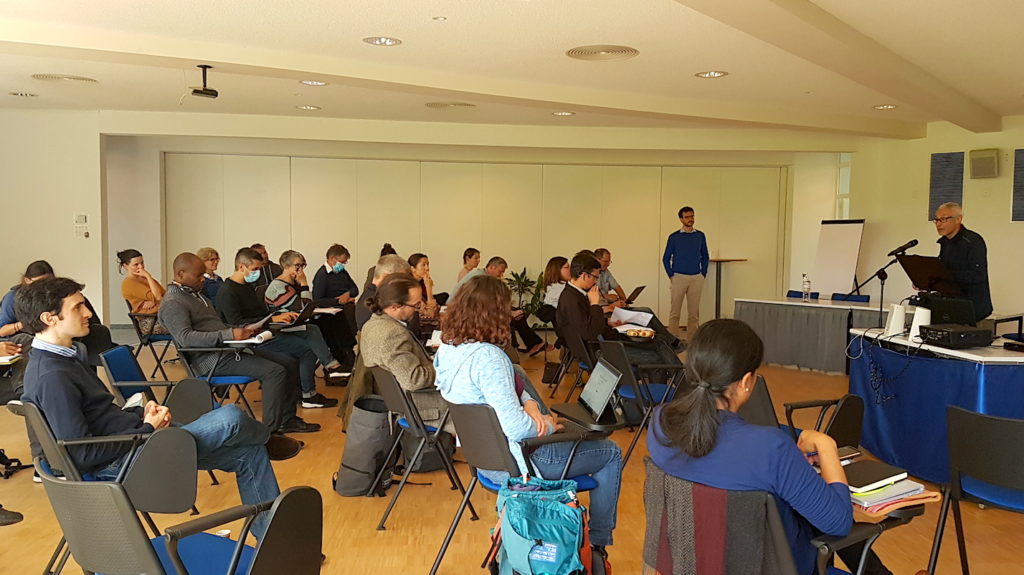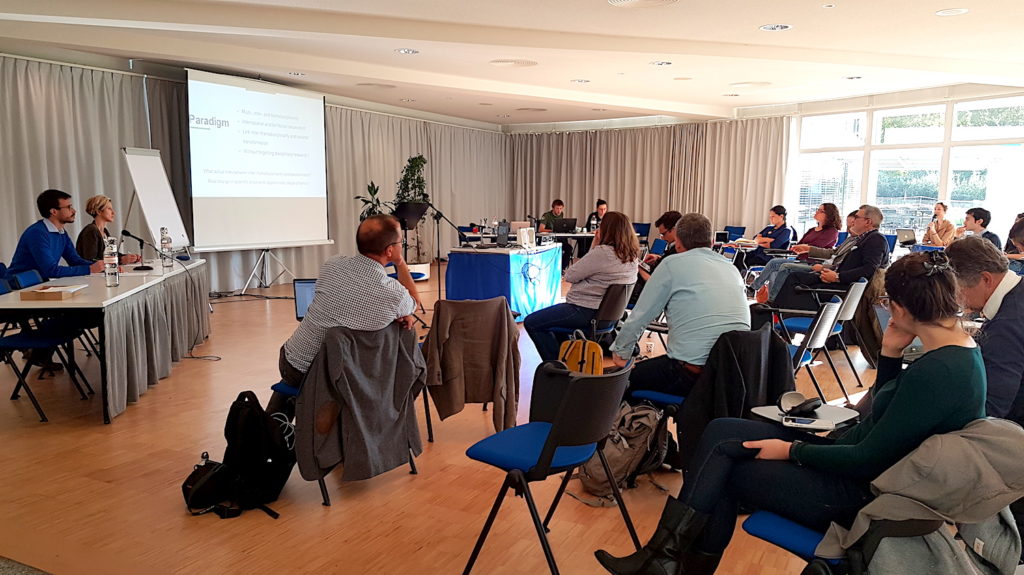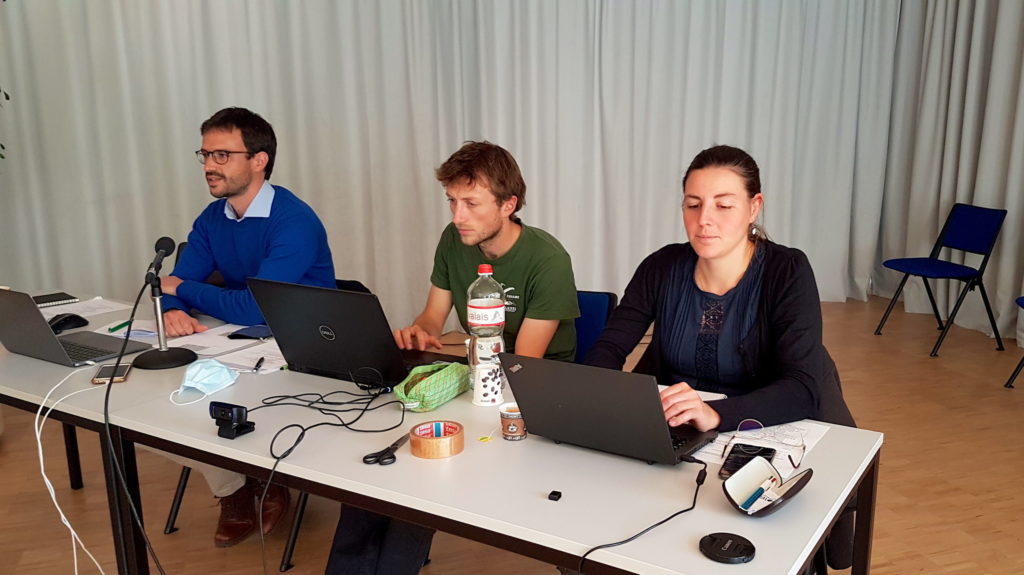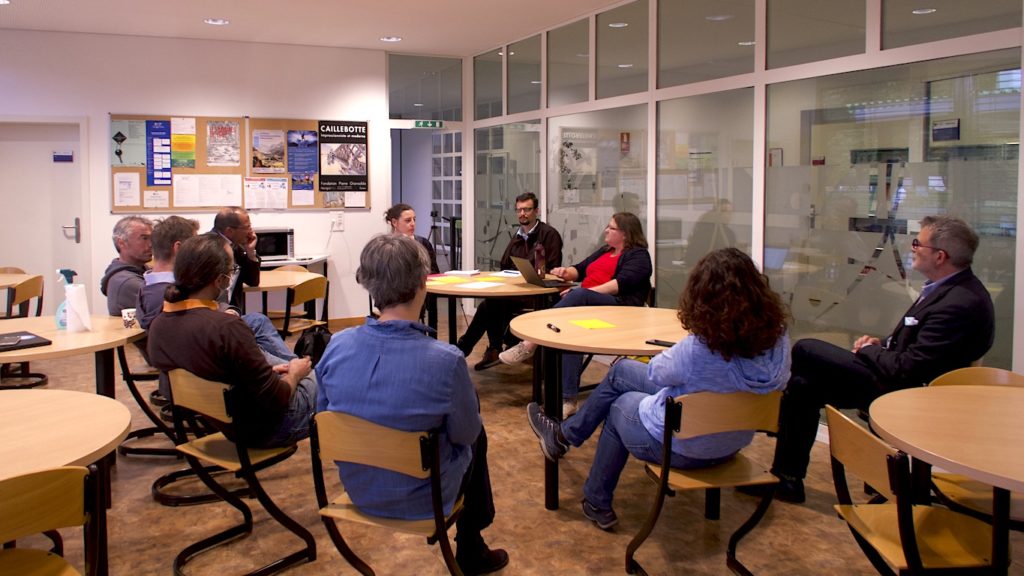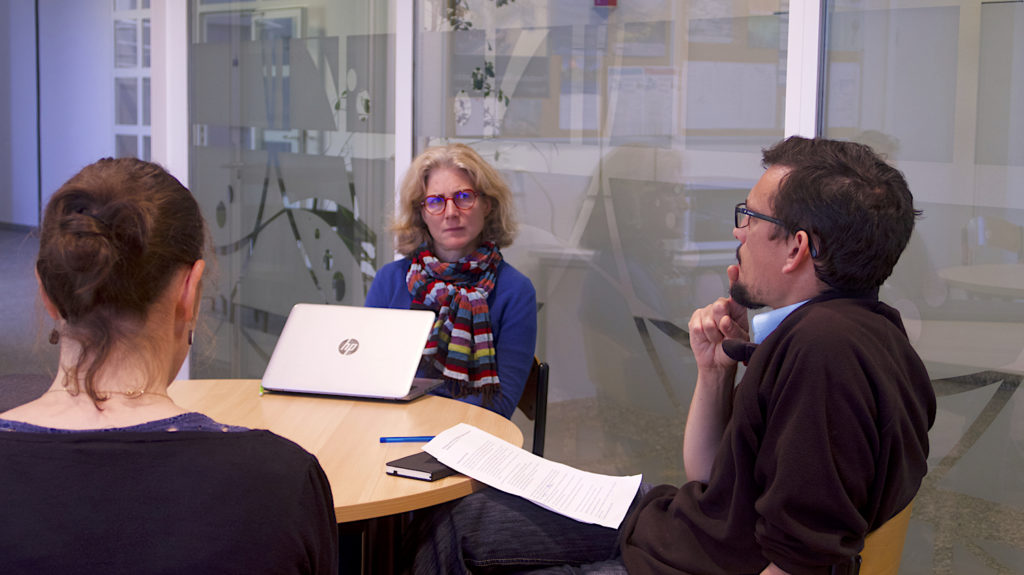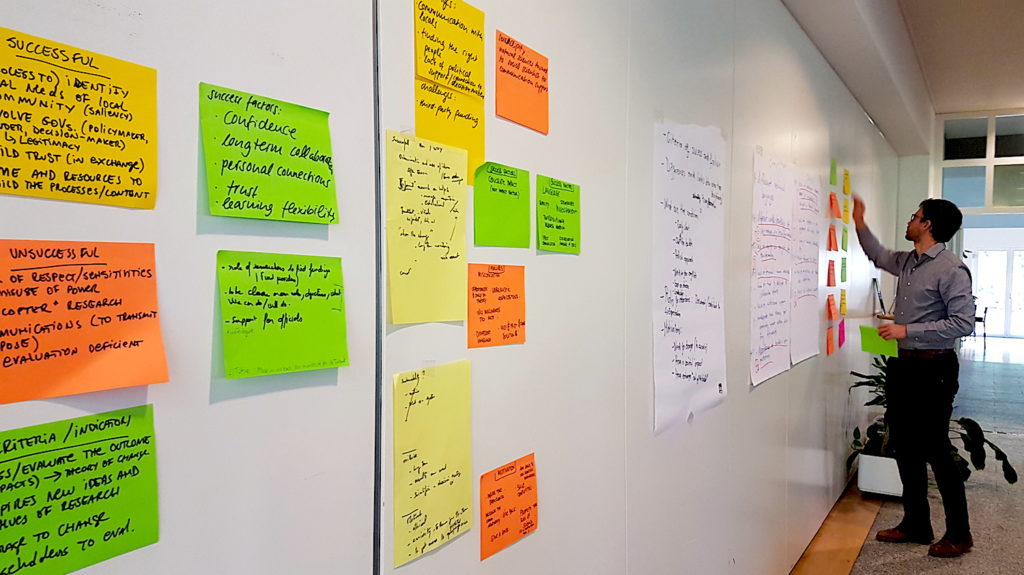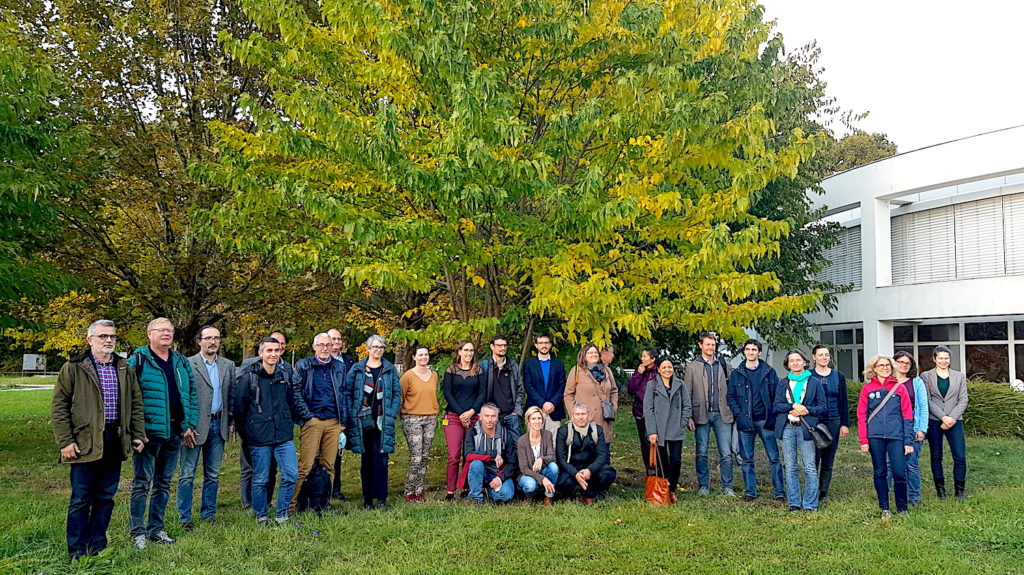Labex life
Research networks and territories: how to make a difference for a sustainable future?
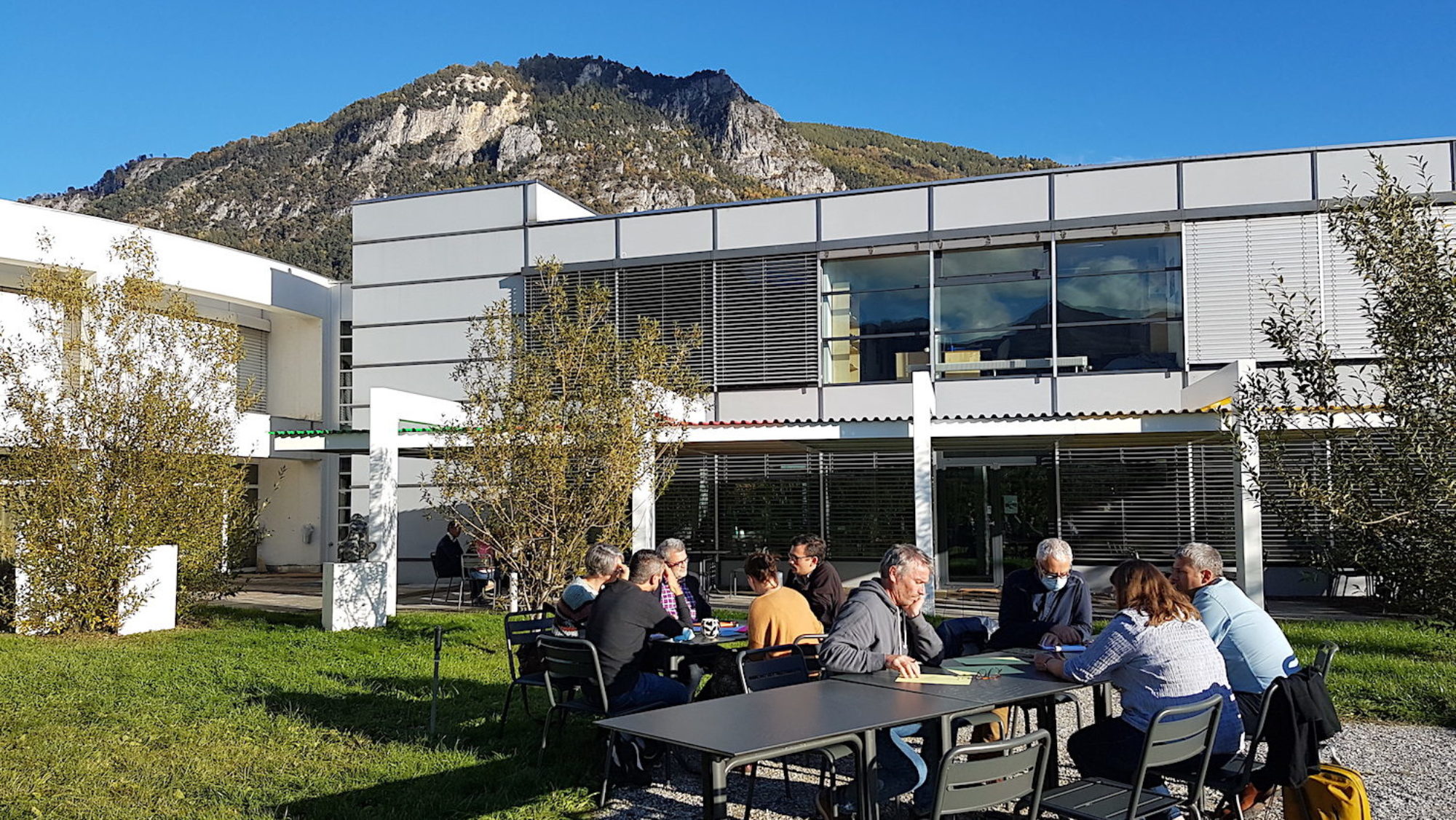 © Leïla Shahshahani
© Leïla Shahshahani
The international seminar co-organized by Cirm and Labex ITTEM on October 21 and 22, 2021 on the Sion campus (Switzerland) brought together a community of fifty scientists with different visions and backgrounds, from some twenty international institutions. Together, they sought to understand the contribution of inter- and trans-disciplinary research to the issue of sustainability in mountain regions.
The objectives of the seminar were:
- Share concepts, obstacles, successes, challenges, best practices and experiences of inter- and transdisciplinary research on mountain territories.
- Initiate an assessment of the impact of this research on the transformation/transition of mountain regions
- Design concrete actions that this community could carry out in the future.
Difficulties identified
Among the obstacles to be overcome in the perspective of collaborative work, participants stressed the importance of maintaining the link with territorial players over time and staying alert to their societal commitment, while developing their skills in scientific communication with a variety of audiences.
Long-term, sustainably-funded research would also help to strengthen researchers’ commitment, as would involvement in local and international governance bodies, in order to highlight the urgent need for action and influence decisions.
The researchers addressed the notion of “collective intelligence”, and the crucial question of the co-production of data and knowledge between scientists and stakeholders, and the valorization of results, made difficult by the constraints inherent in scientific work (publications) and the lack of time on the part of stakeholders. In addition to scientific articles, other communication media with strong educational potential should be considered, such as manuals or videos.
What role for the researcher?
The question of the role of the researcher in the context of transdisciplinary projects with other professional categories was also raised. Today’s scientist needs to move away from his or her “scholar” posture and place his or her knowledge on an equal footing with that of his or her partners. They must also learn to position themselves as research professionals, and not as experts in their own discipline, as is the case in academia.
This issue is at the heart of the problems faced by young researchers, who are struggling to make a career for themselves in a university environment that has become too selective, and who are best placed to define this new professional identity by stepping outside the academic “box”. For example, by creating cooperatives, associations or collectives capable of generating new professional contracts for research.
Sharing best practices
The need to explore new ways of working – from setting up projects to popularizing science and designing large-scale, transformative experiments – and to share examples of good practice, is now imperative.
We need to make the most of our various communication channels to showcase and disseminate the positive impacts of research on territories, and to stimulate the commitment of researchers and funding bodies.
Effective communication strategies – webinars, meetings, public events – can also help to strengthen links with mountain residents, practitioners and stakeholders, through the sharing of research methods and results, and the development of collaborative thinking.
The questions raised at this workshop in Sion will undoubtedly provide food for thought at forthcoming events, such as the fiftieth anniversary of the Stockholm Conference on the Environment, or the International Mountain Conference in Innsbruck.
See also the Cirm and Mountain Research Initiative reports.

